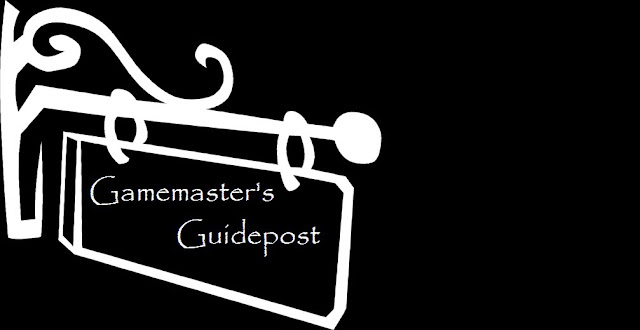Guest Post by Antoni Ten Monros
Steve Jackson Games is running the “Dungeon Fantasy Roleplaying Game, Powered by GURPS” Kickstarter, and one of the questions you often get, is why? Why use GURPS to handle dungeon delving games, when the 800-pound gorilla of the industry, D&D, and it’s (retro)clones have that market niche well covered? What does GURPS bring to the table to this very crowded genre? What’s GURPS Unique Selling Point for dungeon delving?
In my opinion, GURPS gets to offer a more satisfying dungeon delving experience. Of course, this is really a matter of taste, and you’re free to have your own opinion, but allow me to present the reasons why I feel this way:
Dungeons and Dragons evolved from Chainmail, a wargame, and to this date, it still carries the weight of some design decisions from times long past. The most evident is the nature of HP. HP in Dungeons and Dragons represents, depending on the edition, a mix of physical toughness and capacity to take punishment, luck, fatigue, motivation, the ability to block, parry and dodge attacks, etc. Being low of HP can thus mean being bruised and bloodied, but it can also mean being out of luck, being tired, lacking the drive to fight, or just no longer being able to defend oneself any more. Attacks and armor are similarly abstract. An attack does not necessarily mean one has swung one’s weapon to a foe, it might represent a taunt that saps your opponent’s will to fight, or it can represent just one blow out of a series that actually has the chance of hitting. Similarly, armor class can represent actual armor or having a tough skin, but it can also represent luck, motivation towards surviving, agility,… This is supposed to average over time, meaning that factors that increase your combat effectiveness represent bonuses to hit and/or deal damage, while bonuses that are supposed to make you survive longer are all added to your armor class statistic or your HP total. The problem with these assumptions is that they are usually not clearly stated, and they are leaky. Why, if being hit does not necessarily mean you are hit, and wounded, do you suffer the effects of poisoned weapons when an “attack” “hits” you? Why can a high level character survive terminal velocity with barely a scratch? Why do super strong, clumsy overs with hard as leather hides manage to hit your fast moving agile character so well, while his rapier fails to connect?
On the other hand, in gurps, a wound is a wound. Being tired means you have less fatigue points. Armor reduces the severity of hits. Being strong does not make it easier for your attacks to connect, but makes any attacks that connect gruesome, while being agile means your attacks will connect more often, and you’ll manage to evade more of your opponent’s attacks.
Recent versions of D&D have also done away with facing, hit locations, and most combat options, unless you happen to have the right feat/class feature. This means that your invisible wizard who happens to get behind a completely unaware foe doesn’t get to be specially effective when he tries to brain it with a club, as he is neither proficient with clubs, nor does he posses backstabbing or sneak attack class features, and “hitting the head” is meaningless flavor that might at best mean he rolled a critical hit.
Meanwhile, GURPS tracks facing, posture, and allows for hits to be directed to particularly relevant locations for additional damage, or special effects such as crippling.
This is actually part of the above point, but deserves it’s own entry. As opposed to other games, GURPS makes hitting easy, but moves the onus of making such a hit effective on the defender’s defensive capabilities. Attacks are countered by active defenses that represent trying to dodge, block or parry incoming attacks. While some will say that this is statistically equivalent to the attacker rolling against a higher difficulty, that includes the defensive capabilities of the defender, and they would not be wrong, this gives the game a much different feeling. If your character is hit, it’s not just because your foe rolled well, but also because he outmaneuvered you to overcome your defenses, or maybe you just rolled badly. D&D and similar games, by putting everything into the attacker’s capability to overcome a defensive value, result in the players feeling hopeless outside of their turns.
Since combat is not abstract, and since being wounded actually means being wounded, combat is not a war of attrition trying to deplete your opponent’s HP before he depletes yours. Being wounded in GURPS has severe consequences that greatly reduce your chance of being able to fight and defend successfully. Combats can be won without suffering damage, or decided by who manages to inflict a serious wound first.

